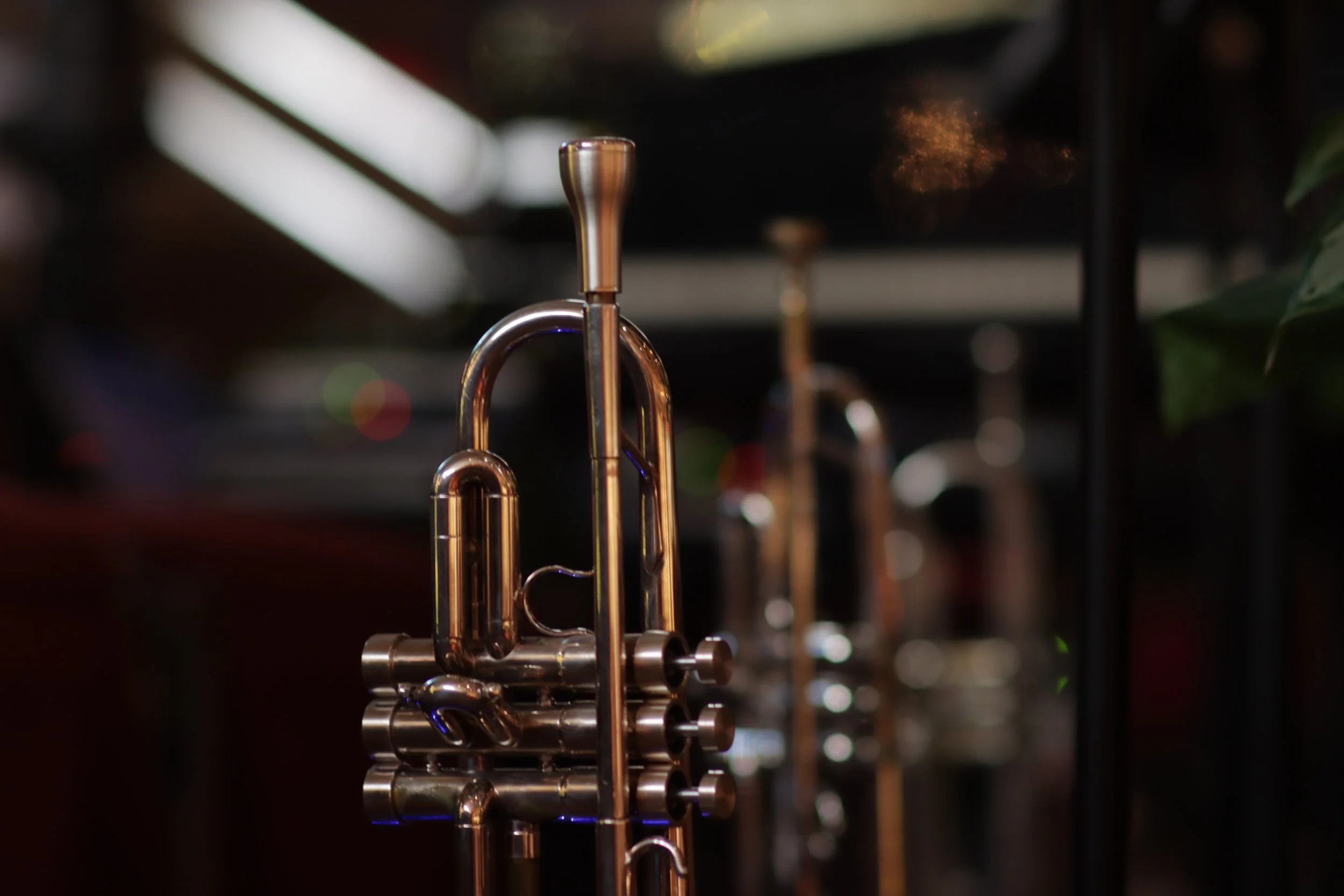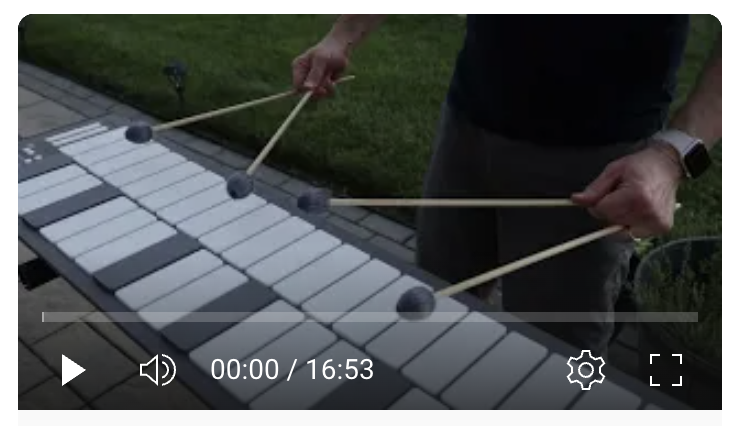Music and the Arts in Caregiving
A Musical Life
I would consider myself a musical person. I suppose that makes sense given that my parents enrolled me in piano lessons in the 2nd grade, which turned into percussion lessons in the 4th grade, and eventually a Bachelor of Music in Percussion Performance from the University of Florida. I then married Tina, fair to say, a far more musically gifted person than me. I have been involved in music ministry in churches since the 7th grade (Tina, for much longer than that), and for many years in our marriage, Tina and I would spend time writing and sequencing music for fun, or for friends, or for music ministry opportunities. We also had the joy of helping to lead worship ministries together.
So it may be surprising to share that for the last six years music has had almost zero place in my life and in my daily experience. To be honest, this is kind of tragic and that truth isn’t lost on me. Music has always brought me joy and has been a significant way I have expressed myself, my moods, and my worship to Jesus.
So why did music become so absent?
“Welcome to Nashvegas”
I suppose one of the reasons I lost touch with music involved a move to Nashville, one of the most heavily saturated “fantastic-musicians-trying-to-make-it” markets in the country. You can throw a stone and literally hit a profoundly good musician, just across the street. This means a lot less opportunities for Sunday morning music involvement if you’re not already part of some scene or musical cohort. I may sound bitter, but I’m really not. To be honest, the sabbatical from Sunday morning worship music has probably been very good for me.
Crowded out by caregiving
Truthfully, the absence of music was largely due to the extended period of caregiving Tina and I entered into while caring for her Dad (Doug) during his last health and cognitive decline, and her Mom (Nola) who had Lewy Body dementia. I had to drop out of any musical opportunity (which really weren’t many because of the Nashville thing), and focus my energy on caregiving and the juggling of many new responsibilities including caring for the financial, medical and psychological wellness of those who once took care of us. Playing, practicing, or producing music (I thought) was a luxury no longer appropriate for my new role in life.
And that’s where I failed to make a significant connection between music, the arts, and soul health - particularly, caregiver soul health. I alluded to this reality in the last blog installment, but felt I needed to journal this one out with more transparency. Music never needed to disappear entirely.
The healing power of music
There are a multitude of studies about the healing qualities of music in medical recovery, psychological health, trauma rehabilitation, etc. There’s an entire musical/medical field, in fact, called “Music Therapy”. What may be less documented is the tremendously powerful effect of music on the wellness of those with cognitive decline (dementia, Alzheimer’s, stroke-induced TBI, etc), and music as a shared language of healing between cared-fors and their family caregivers.
One inspiring endeavor that most have never heard of is “To Whom I May Concern”. According to their website, TWIMC is:
“an interactive theater program designed to give voice to people who have recently been diagnosed with a progressive brain illness such as Alzheimer’s disease.
Using their own words and scripting, these individuals share their stories and experiences with audiences made up of family members, peers, friends, care partners, and professionals. Working with a professional moderator and writer, in groups online or in person, clients are able to create their own narrative, expressing their fear, anger, frustration, hope and determination — often with humor and love.”
I learned of TWIMC first when researching the story of one of my original percussion inspirations and heros, Dave Samuels. As it turned, this mallet percussion maestro suffered from early On-Set Alzheimer’s. As part of his journey, he contributed to some of the original “To Whom I May Concern” efforts, performing for two of the scripted shows, and playing his instrument in the third show when the progression of the disease encumbered his ability to follow the script (amazing how musical expression persists).
While CaringBridge is most well known as a self-service care network-building portal for caregivers, it also has many helpful resources and articles for caregivers. The article Music and Healing: Expressing Feelings through Music is a great overview of how music can play a powerful role in sustaining caregiver and cared-for health and wellness:
“Throughout our lives, music serves as a backdrop to our most significant moments. Music takes on a profound role in times of hardship, particularly during health journeys. This is true no matter the health issue, be it a long-term hospital stay or a new diagnosis.”
Music never disappeared…
While I wasn’t practicing, playing, or producing music myself, the truth is that God in His infinite mercy never let music truly disappear from my life. It took on a new role, something more like a reassuring presence and comforter. Music proved to be a ‘backdrop’ to this most significant and challenging season of my life.
During our in-home caregiving season, one of my devotional practices (and really a personal escape), was to take an evening walk around our neighborhood, with my ear pods in. I developed a favorite playlist - worship artists whose songs felt so raw and authentic that they touched a very vulnerable place in my spirit. I would listen to these relatively few songs over and over and over, making the words my own and the songs themselves a prayer, a heart cry.
A shared language…
But it wasn’t just these personal and private therapy-devotional walks where music surprised and sustained me. It was moments with Nola as well. I’ve shared elsewhere how Nola was enormously gifted musically (hence, Tina derived her incredible gift).
This is a pic of Nola trying to teach me to play the accordion many years ago. I never did. But when she was a girl, she won a competition playing “Flight of the Bumble bee” on the accordion!
Nola had perfect pitch and could play almost anything on piano by ear.
Three generations of musical giftedness gathered around the piano.
While Lewy Body dementia stole much of her executive and motor function, her ability to hear and sing on pitch was never impacted. In fact, she could sing many hymns and old gospel songs from memory, including 2nd, 3rd, and 4th verses!
Tina and I knew instinctively that music would be a primary way to redirect Nola in her emotional turmoil, but as well a place where we could experience again, even if for just a very brief moment, a shared space and language of love. Our happiest moments during the most painful stretches of Nola’s Lewy Body journey were sitting in a little Nazarene country church on Sunday mornings, singing hymns we all knew together. I even tried to dust off my bass and tenor sight-singing skills - which weren’t good - to humorously gain more than a few amused side-stares from Nola.
If you are a caregiver, don’t miss the opportunity to reclaim moments of mutual joy in the shared space and language of music - or the arts, depending on what creative avenues were shared in your family. There is science behind the beautiful truth that in failing cognition and atrophy of the brain itself, the brain region that maintains and nourishes creative expression is the last to go. I believe there is a metaphysical reason for this as well, in that creativity is rooted ultimately in our soul and spirit.
Is it any wonder that the inexpressible glories of Heaven as described in the Scriptures includes a never-ending, never-boring, never fully resolving song of praise (see Revelation 4). Music, in whatever unimaginable form it takes there has been, is now, and will forever be the backdrop of everlasting beauty. Wow.
Epilogue: the return of music?
Not long after Nola passed, I became acutely aware that I had not managed the stress of caregiving well. I did what many caregivers do: I stuffed the difficult emotions deep down and tried to stay as task-oriented as possible. The problem is, that’s not emotionally healthy and almost always leads to other physiological, emotional, psychological and spiritual health complications. Which it did. There were many preventive measure I could have taken throughout the caregiving journey to avoid this, including availing myself of the therapeutic properties of musical expression.
So, I knew I needed to recover and work towards improved health in all these areas. Musical withdrawal was no longer acceptable. In the interest of space and time, instead of sharing that whole journey here, I’ve made it available as a video short: https://youtu.be/o7LoUKlarzg .
What was deeply meaningful to me on this journey was the discovery I shared about Dave Samuels above. The writer of the marimba piece I chose to learn, little did I know at the time, had suffered early On-Set Alzheimer’s. I wasn’t just relearning to play music, I was somehow intersecting with his journey, and pouring my own caregiver emotion into it. So, the healing continues.
Caregiving friend, what is missing from your journey right now? Is it theater, music, art, poetry, prose, dance…? What is a creative expression that was meaningful to your loved one? What was a creative medium you may have shared? I don’t know what finding that shared language looks like specifically in your context, but I do know that the God of all creativity can and will inspire you to find a way to engage it again, and to do so now. Don’t be like me and put it off until the unhealthiness of its absence has affected you.
Let me close with a devotional excerpt I read recently:
“Sixteenth-century Spanish mystic John of the Cross wrote:
‘Oh, night that guided me
oh, night more lovely than the dawn,
oh, night that joined Beloved with lover
Lover transformed in the Beloved!’Guide us, Lord, through the dark places of our day that we might trust you when shadows overcome the light. Remind us that darkness is as light to you. Amen”
And i’ll add, “and may music and the arts be the language of that light”.
Bless you



